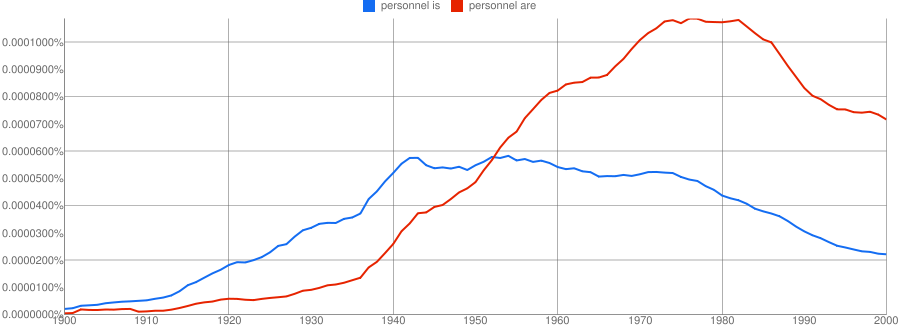In your definition no. 2, personnel is used as short for personnel department, i.e. the department of a company responsible for hiring and firing personnel. It is just like research standing for research department, etc.
Better take those papers to Research. Or, wait, I think the guys at Personnel should have a look at it first, since it concerns hiring new research personnel.
I consider the word personnel to be singular. The plural personnels is not used, because this word is a collective noun, i.e. a singular noun that can be treated as plural and gets a plural verb, just like police, family, etc. Whether to use a singular or plural verb depends on whether you are thinking of the group of people that make up the personnel (plural), or rather the concept or unit of personnel (singular, less frequent).
The personnel have been complaining about working late.
Our well trained personnel is our greatest asset. (Plural might be possible too, but probably less common in this sense.)
I think Personnel is not going to be happy about moving to a new building. (The Personnel Department; plural would probably work as well? Not sure.)
Note that plural verbs with collective nouns are more frequent in England than in America.
[ Some people would call collective nouns plural, but I'm not a big fan of that. I consider plural primarily an inflectional quality, its syntactic ramifications being secondary. That is how plurals are analysed in other languages as well. Just as we only call committees plural, never committee, not even in sentences like the committee have come to a decision. But I can understand if some people might disagree. Each model has its merits. ]

